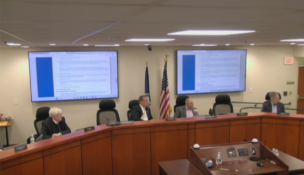New report finds identity theft on the rise
A recent study found 12.6 million victims of identity fraud in 2012; an increase of 1 million over the previous year. The report, by Javelin Strategy & Research, also found that the total amount of fraud increased to $21 billion, the largest loss suffered in the past three years, and an increase of nearly $3 billion from the 2011 study.
Data from the report , sponsored in part by Chantilly-based Intersections Inc., indicated one in four consumers who received a data breach notification became a victim of identity theft, with Social Security numbers being the most damaging piece of personal information stolen.
As a co-sponsor of this year’s study and a provider of consumer and corporate risk management services, Intersections said consumers should be vigilant when it comes protecting personally identifiable information. “There are a lot of misperceptions about identity fraud but with fact-based studies like this, consumers, financial institutions and service providers can be empowered to work together to help combat the threat of identity fraud,” Steve Schwartz, president of Partner Services for Intersections Inc, said in a statement. “Fraudsters are becoming savvier, especially as our society becomes more reliant on instant gratification through the usage of the Internet and wireless devices.”
Intersections offered these tips to help consumers protect their personal information:
• Be social, but be smart. Consumers should take extra care when deciding who to connect with and what applications to accept. Users that approve friend requests from strangers and use GPS/location based applications are far more susceptible to fraud.
• Take caution with mobile computing. The convenience of online and mobile banking is here to stay, but consumers need to take the extra step of ensuring their network connection is secure and their devices have updated security. Never access your banking information through public Wi-Fi. Instead, use your carrier’s cellular service.
• Act quickly. Consumers must act quickly in the event of suspicious activity, reporting it to their financial institutions and law enforcement.



















